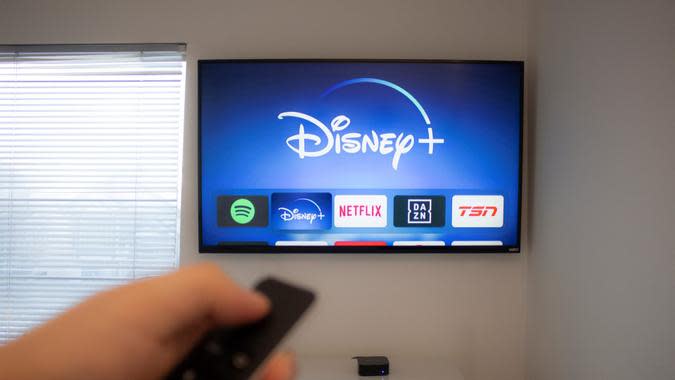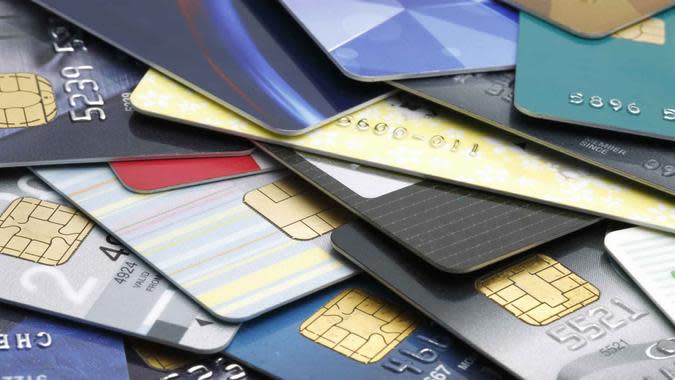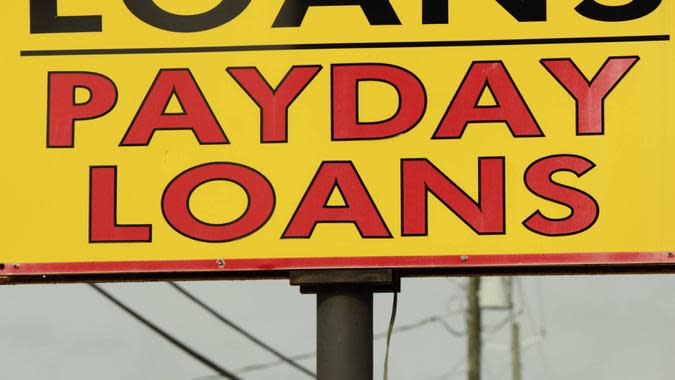8 Common Expenses You Should Avoid at All Costs

People frequently pay for things they don’t use or need. Some of these expenses are small and don’t have much of an impact on their budget. Others can really affect their overall financial situation and make it harder to handle other expenses as they arise.
Find Out: 10 Expenses Most Likely To Drain Your Checking Account Each Month
Read More: 6 Genius Things All Wealthy People Do With Their Money
If you’re trying to save money, there are a few common expenses you should avoid at all costs. These are the big ones.

Streaming Subscriptions
According to C&R Research, the average American spends $219 a month on streaming subscriptions. This includes subscriptions to things like Amazon Prime, Netflix, gaming and music apps, and the news.
While it’s relatively easy to unsubscribe from or cancel most subscriptions, it’s even easier to forget that you have them in the first place — especially if you have autopay set up or started with a free trial. But these costs can quickly add up and eat into your available cash.
“We’ve all had the experience of forgetting to cancel a free trial before it lapsed and been hit with a monthly fee we didn’t expect,” said Sonali Divilek, head of digital products and channels at Chase Bank.
So, what do you do if you have a bunch of unnecessary subscriptions?
“Conduct an audit to determine what services you currently have subscriptions for to avoid excess expenses. Consider which platforms offer the most content you’re interested in,” Divilek suggested. “You may even find you no longer need some. There are also apps available to help you track what subscriptions you’re currently paying for.”
Be Aware: 5 Unnecessary Bills You Should Stop Paying in 2024
Check Out: I’m a Frugal Shopper: 7 Things I Never Waste Money On
Sponsored: Credit card debt keeping you up at night? Find out if you can reduce your debt with these 3 steps

Credit Cards
Credit cards can be a useful tool if you’re trying to establish credit or want to earn rewards or other perks for making certain purchases. But if you fall behind on payments or if you don’t pay off the full balance every month, you’re going to get hit with interest charges.
“You’re losing money if you don’t pay a credit card’s balance in full each billing cycle. This is even worse if you got a credit card for the cash-back rewards — that interest could be canceling out any rewards you earn,” said Bethany Hickey, personal finance expert at Finder.
The higher your balance, the more you’re likely to pay in interest charges. If you’re not careful or if you only pay the minimum amount due, you could end up paying hundreds or thousands of dollars in interest alone.
And if your credit card comes with annual or other fees, those could be cutting into your budget even more.
Learn More: 7 Home Items To Avoid Buying in 2024

Payday Loans
Payday loans are a type of short-term loan with an incredibly high interest rate. They’re supposed to be used for emergencies, but the fees lenders charge are nothing short of exorbitant.
“Avoid payday loans if at all possible. Most payday loans come with extremely high APRs, anywhere from 200% to 600% depending on the loan amount and fees,” Hickey said. “If you’re coming up short on expenses, ask your creditors about hardship programs they may offer, which might allow you to defer a payment or two.”

Buy Now, Pay Later
Buy Now, Pay Later, or BNPL plans, let you pay a portion of your purchase upfront and spread the remaining amount over a set period of time — usually a few months. These plans are a type of short-term financing that let you buy what you might not have been able to afford otherwise.
Most BNPL plans don’t come with any interest or financing charges. The downside is that it’s all too easy to miss a payment or pay late. When that happens, you could be hit with fees or even damage your credit score. The former could hurt your budget; the latter can lead to higher interest rates or less favorable terms in future loans or credit cards.

Student Loans
It’s no secret that the cost of higher education is high, but those student loans and associated fees can seriously hurt your finances over time.
“Many families fall into the trap of high-interest student loans,” said Ryan Clark, independent college counselor and CEO of Clark College Consulting.
This is especially common for borrowers with poor credit who take out private student loans.
The good news is that it’s possible to avoid some of these fees. Clark suggested looking into alternative financial aid options like scholarships, grants and low-interest federal loans.
Find Out: This Is the One Type of Debt That ‘Terrifies’ Dave Ramsey

Application Fees
Application fees are another common expense you should try to avoid as much as possible. From college applications to apartment rentals, these fees can add up and fast — especially if you’re putting out multiple applications at once.
Regarding college applications, here’s what Clark said:
“Application fees for multiple colleges can quickly add up. I advise families on strategic application planning, including identifying colleges with no application fees, utilizing fee waivers, and making use of early decision or early action programs to minimize application costs.”

Bundled Plans
There are a lot of different types of bundled plans. For example, you could bundle several insurance policies into one. Or you could get a cable, internet and phone plan bundle.
While plans usually save you money compared to purchasing each plan separately, the cost isn’t always worth it. If you’ve been paying for a bundle that includes things you’re not actually using, it might be time to cut the cord and stop spending your hard-earned cash.

Extended Warranties
Whether it’s your car or a new computer, you’ve probably been faced with the option of getting an extended warranty. While these can be helpful at times, they’re often a money suck.
“Extended warranties on electronics and appliances represent an expense that’s not always justified,” said Jenna Trigg, co-founder at Silver Fox Financial.
These might give you temporary peace of mind. But as Trigg pointed out, it’s often cheaper to handle basic repairs or replacements yourself than it is to get a warranty.
More From GOBankingRates
Rare Bicentennial Quarter Has Nearly $20K Value -- Plus 7 More Worth Big Money
This is One of the Best Ways to Boost Your Retirement Savings in 2024
6 Things You Should Never Do With Your Tax Refund (Do This Instead)
This article originally appeared on GOBankingRates.com: 8 Common Expenses You Should Avoid at All Costs